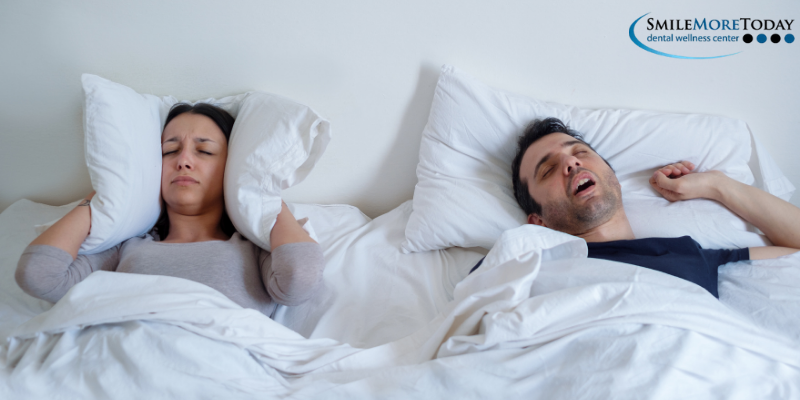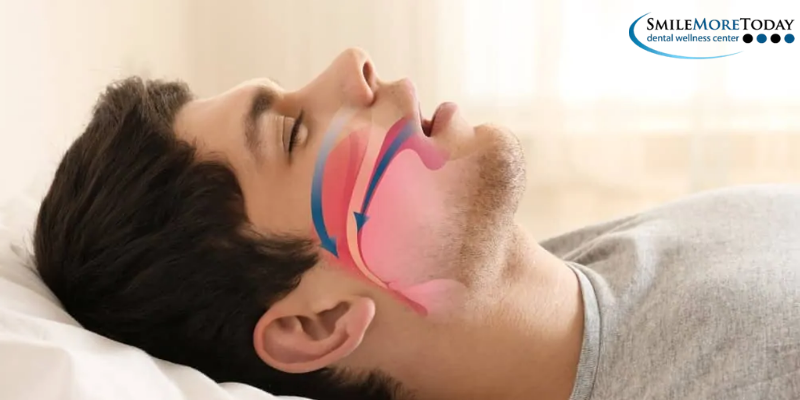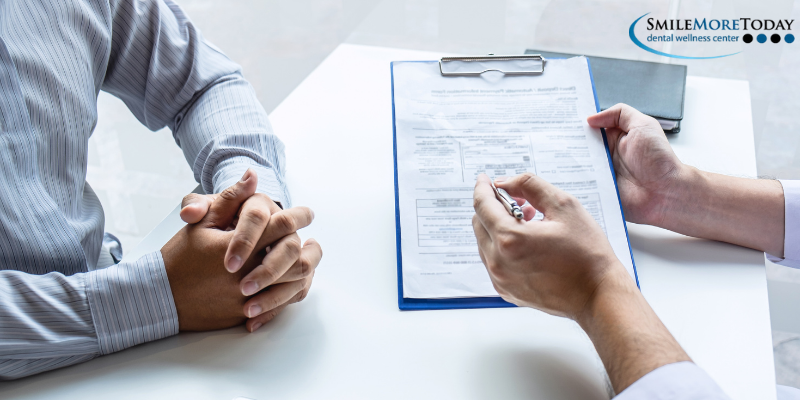Difference between Snoring and Sleep apnea – Solutions

At some point in time, nearly all of us will snore now and then. Most of the time, snoring poses no real threat to health, although it can affect the quality of sleep. Obstructive sleep apnea, on the other hand, is a serious problem. More importantly, obstructive sleep apnea is a condition that many people mistake for chronic snoring. Not recognizing the differences between snoring and sleep apnea can mean the difference between health and chronic illness.
Snoring
We snore when the flow of air becomes obstructed. As air is blocked, more effort goes into breathing, and the telltale snoring sound is made as soft tissues in the airway vibrate. There are several reasons that snoring may occur, such as an excessive amount of soft tissue around the airway, swelling in the nose or airway, and weak muscles. The important difference between snoring and obstructive sleep apnea is when we snore we are still moving air.
Obstructive sleep apnea

In our Vernon Hills dental practice, we consult with patients regarding sleep apnea frequently. Dr. Kumar is experienced in recognizing the symptoms of obstructive sleep apnea, and in providing effective treatment.
Snoring still allows the movement of air into and out of the lungs, but sleep apnea is characterized by pauses in airflow. Breathing will stop for 10 seconds or longer. In this time, the brain does not receive the oxygen it needs to function and sends signals to rouse sleep. Obstructive sleep apnea occurs when airflow becomes blocked, usually when muscles around the throat become fully relaxed.
Why snoring and sleep apnea are misunderstood
Technically speaking, a person with sleep apnea does not snore during apnea episodes. One cannot snore when he or she is not breathing. However, most people with obstructive sleep apnea will snore quite loudly before and after an apneic event. One may vary between loud snoring and complete silence hundreds of times a night.
Solutions for obstructive sleep apnea

Receiving an accurate diagnosis for obstructive sleep apnea is important for sustained health and wellbeing. Your dentist or medical professional can help you determine if you are suffering from this serious condition, and get the type of treatment that will best suit your needs. At SmileMoreToday, Dr. Kumar offers non-invasive, comfortable treatment with an oral airway appliance, designed to keep the jaw and tongue properly positioned comfortably during sleep so that airflow continues the way it should.
Contact our Vernon Hills dental practice to learn more about sleep apnea, or to schedule your visit with Dr. Kumar.




